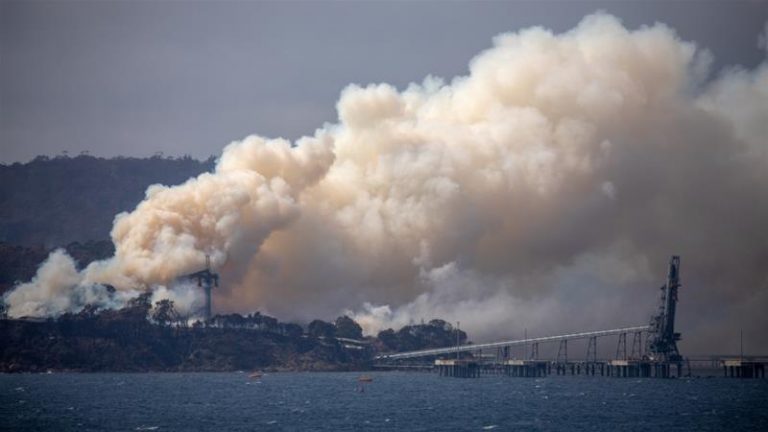
Eden, Australia – For much of the new year, Eden, on Australia’s southeastern coast, has been anything but paradise. Despite recent rains in some parts of fire-ravaged Australia, a smoke haze has hung over this town in the state of New South Wales.
Many residents in the area have been in limbo for weeks, after a horrific bushfire season displaced communities and engulfed more than 10 million hectares (24.7 million acres) across southeastern Australia, an area greater than the size of South Korea.
Eden was surrounded by fires after December 25 and into the new year and, while the immediate threat has lessened, the effect of the fires on industry here and across Australia is starting to become apparent.
“We are a ghost town,” Eden restaurateur Diana Stojanovic told Al Jazeera, adding that the fire cut off the main highway between Melbourne and Sydney, which passes near Eden.
“After 20 years running my cafe at the wharf area, this is extremely upsetting. We have all been waiting for something to boost Eden’s economy. Now with the fires, we are laying off staff. The town is suffering, our country is suffering,” said Stojanovic.
Bushfires are an accepted part of life in rural Australia but the blazes this summer have been exceptional, contributing to the worst fire season in the recorded history of New South Wales, Australia’s most populous state.
While some towns continue to defend themselves against the fire front, the national focus has turned to how the disaster will affect economies – both local and federal – now and into the future.
So far, the impact of the fires on the broader Australian economy seems to be minimal. But some sections of society are paying a disproportionately higher price.
“The costs also remain manageable for the general government, with the immediate fiscal costs expected to be less than 0.1 percent of Australia’s gross domestic product in 2020 and 2021,” Moody’s Analytics said in a recent statement. (Aljazeera)





